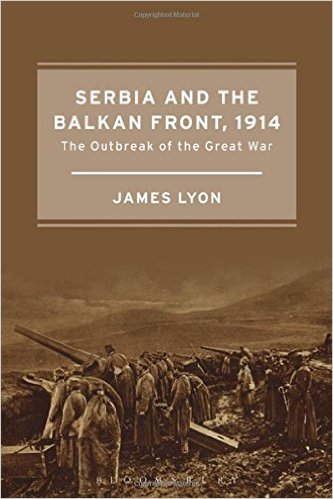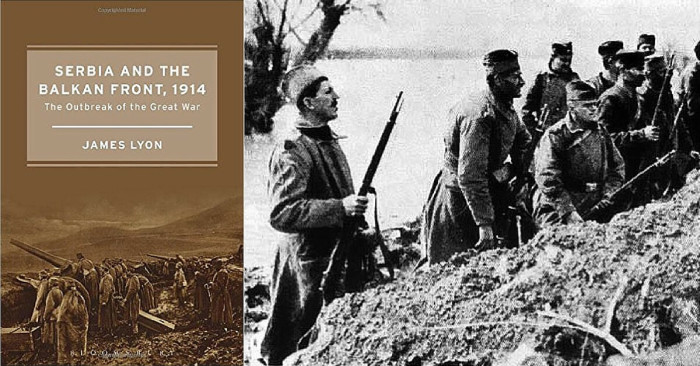Lyon says that Western historians always focus upon Austro-Hungary’s shortcomings without really analysing the Serbian response and capability. Serbia’s importance in the war has been unsung but it tied down enemy troops that could have been deployed against the Entente Powers elsewhere and it blockaded the Danube causing no end of trouble for the Triple Alliance Powers. Lyon says that Western historians have all too often accepted the Hapsburg attempts to exonerate themselves from the blame for the war and therefore have played down the resounding success that Serbia had in 1914 when its forces destroyed the Austro-Hungarian Fifth and Sixth Armies. Therefore, Lyon has written an excellent book that seeks to redress the balance and place Serbia where she belongs in the line-up of victorious allied, Entente powers.
The first part of the book deals with the rise of war from the cauldron of the Balkans. Politics, nationalist ideals and identity, intrigue and machinations, mass executions, hostage taking, transportation, refugees, atrocities and attacks upon the press that came in the early days of the war. “A Sunday in Sarajevo” is a tremendous chapter; it is a highly detailed account of the assassination of Arch Duke Franz Ferdinand and the Duchess Sophie. It is so detailed that the reader is almost there, on the day and at the centre of momentous and deadly events. Serbian history says that the country did not want war and was unprepared. Lyon tells us that Serbia in 1914 was a nation reeling from the material, financial and manpower losses of the first and second Balkan Wars. Despite the fact that it had increased its territory in those wars it did not appear to be in any fit state to fight the Austro-Hungarian Empire.
The book is made up of eleven subdivided chapters and is illustrated with maps and photographs, copious end-notes, a good index and a superb bibliography. Lyon has used numerous Serbian primary source documents to produce a compelling and engrossing book. If you have no other books about Serbia and the Great War in 1914 on the shelf, you can do no worse than obtain this one. It will, as the author has set out to do, redress the balance and give Serbia the place she deserves in the history of the Great War. Excellent reading.
Reviewed by Wayne Osborne for War History Online.

SERBIA AND THE BALKAN FRONT, 1914
The Outbreak of the Great War
By James Lyon
Bloomsbury Academic
ISBN 978 1 4725 8004 7
Dr Wayne Osborne is a respected Great War historian who specialises in and writes about British Great War manufacturing and the workforce, Gallipoli, the 17th (Northern) Division and the 10th Battalion, the Notts & Derbys.


Δεν υπάρχουν σχόλια:
Δημοσίευση σχολίου